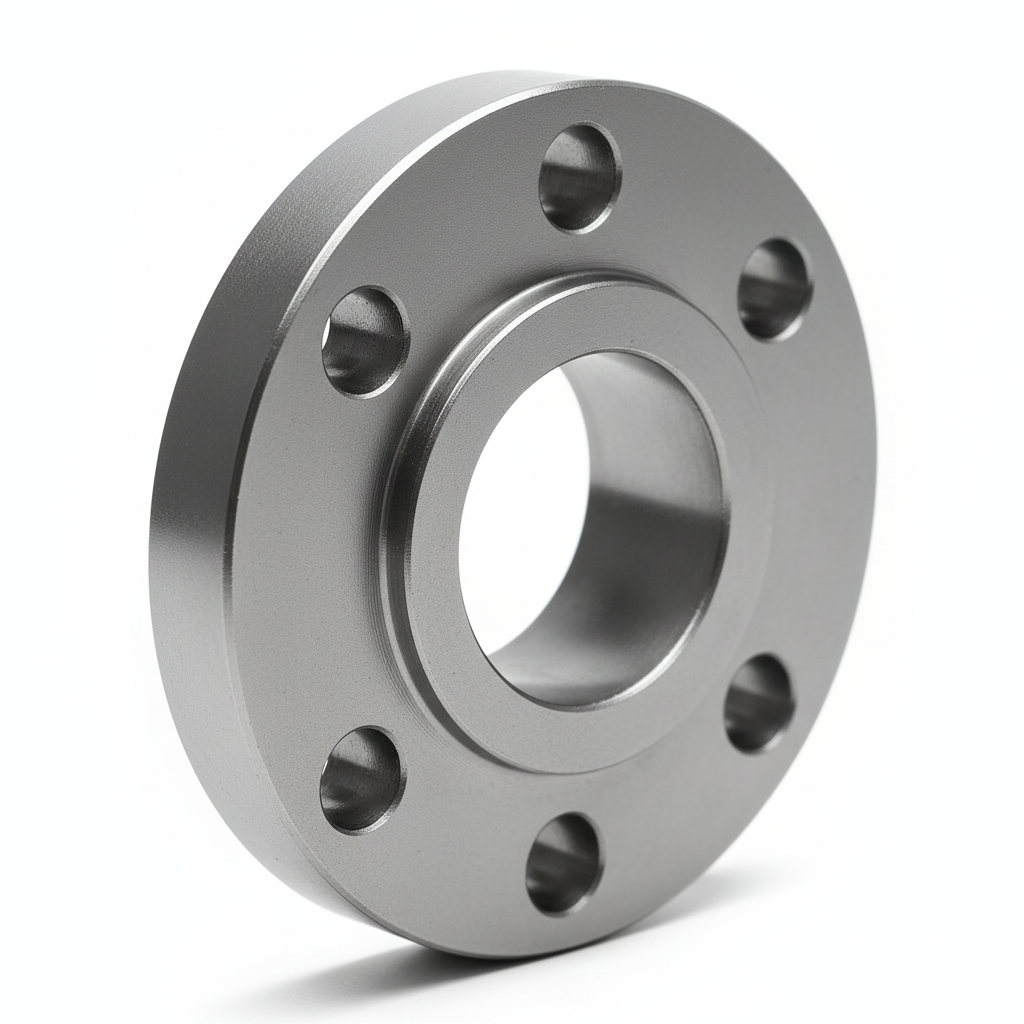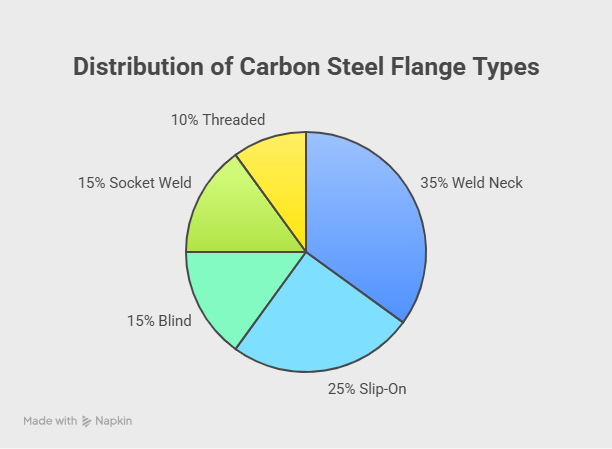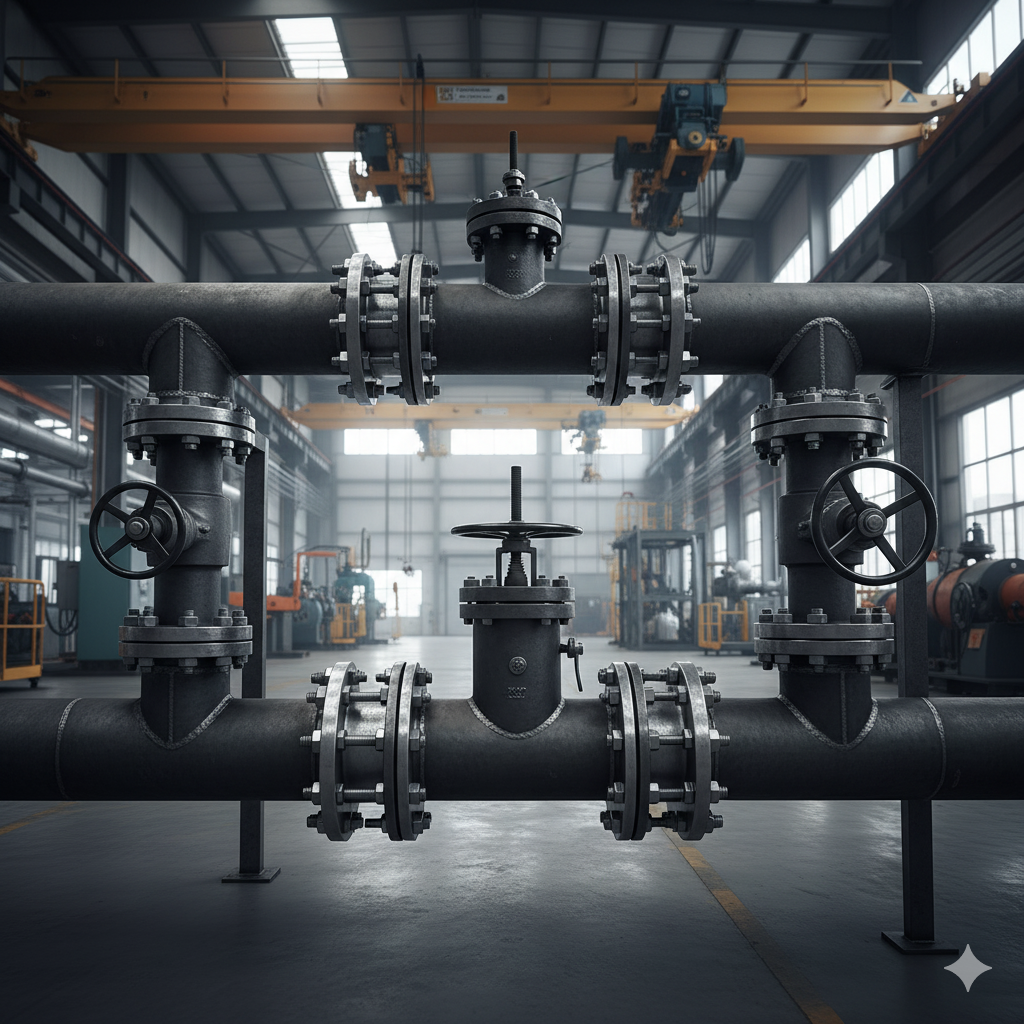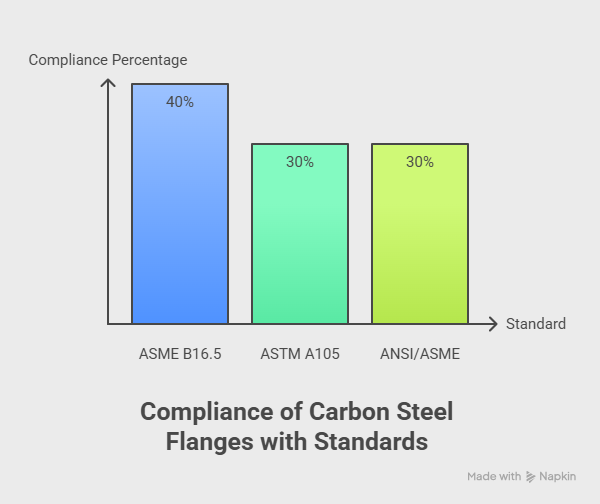Introduction
Carbon steel pipe flanges play a crucial role in connecting pipes, valves, and equipment in industrial systems. These flanges provide reliable sealing, durability, and resistance to high pressure. At Fortis Forge, we specialize in delivering high-quality carbon steel pipe flanges that meet international standards.

What is a Carbon Steel Pipe Flange?
A carbon steel pipe flange is a flat, round component used to join pipes or equipment. It provides a secure seal and ensures system integrity under high pressure. These flanges are crafted from carbon steel, known for strength, toughness, and durability.
Key Features:
High strength-to-weight ratio
Excellent resistance to wear and pressure
Suitable for welding and bolting connections
Available in multiple sizes and pressure ratings
Types of Carbon Steel Pipe Flanges
Understanding flange types is essential for proper selection. Fortis Forge offers a variety of flanges to meet diverse industrial needs.
1. Weld Neck Flanges
Designed for high-pressure systems
Provides strong and leak-proof connections
Ideal for petrochemical and power plants
2. Slip-On Flanges
Easy to install and align with pipes
Suitable for low-pressure applications
Cost-effective option for various industries
3. Blind Flanges
Used to close the ends of pipelines
Ensures system isolation for maintenance
Strong and durable under high pressure
4. Socket Weld Flanges
Pipes are inserted and welded for secure connections
Ideal for small diameter high-pressure systems
Provides reliable sealing
5. Threaded Flanges
Do not require welding
Ideal for low-pressure pipelines
Can be easily removed for maintenance

Material and Manufacturing Process
Carbon steel flanges are manufactured using high-quality carbon steel grades such as A105, A350 LF2, and ASTM A182.
Manufacturing Steps:
Raw steel is cut to the required dimensions.
Forging or casting is performed to shape the flange.
Heat treatment enhances durability and strength.
Machining ensures precise dimensions and smooth surfaces.
Inspection ensures compliance with industry standards.
This process ensures every Fortis Forge flange delivers consistent performance.
Advantages of Carbon Steel Pipe Flanges
Carbon steel pipe flanges are preferred for industrial pipelines due to multiple benefits.
Durability: Withstands high pressure and temperature variations.
Strength: Provides secure connections even in harsh environments.
Versatility: Compatible with a wide range of piping systems.
Cost-Efficiency: Economical for both small and large-scale projects.
Maintenance-Friendly: Easy to inspect, replace, or repair.
Applications in Industries
Carbon steel flanges are widely used across multiple sectors.
Oil and Gas
Connect pipelines transporting crude oil and natural gas.
Ensure leak-proof performance under high pressure.
Power Generation
Used in high-temperature steam pipelines.
Provides secure connections in boilers and turbines.
Chemical and Petrochemical
Resistant to corrosive chemicals.
Ensures safe transfer of industrial liquids.
Water and Wastewater Treatment
Durable for pipelines carrying water and sludge.
Reduces maintenance costs in treatment plants.

Installation Tips
Proper installation enhances performance and longevity.
Inspect flanges for defects before installation.
Align pipes and flanges accurately.
Use appropriate gaskets for sealing.
Tighten bolts using the recommended torque.
Inspect connections regularly for leaks.
Maintenance Guidelines
Routine maintenance ensures carbon steel flanges last longer.
Check for corrosion and rust regularly.
Re-tighten bolts periodically.
Replace gaskets during scheduled maintenance.
Apply protective coatings to prevent wear.
Pro Tip: Fortis Forge flanges are designed to minimize maintenance frequency.
Common Standards and Specifications
Fortis Forge carbon steel pipe flanges comply with international standards:
ASME B16.5: Pressure-temperature ratings
ASTM A105: Carbon steel material standard
ANSI/ASME: Size and dimension specifications
These standards ensure compatibility and safety across global projects.

Choosing the Right Carbon Steel Flange
Factors to consider include:
Pressure rating: High-pressure systems need weld neck flanges.
Temperature: Ensure material can withstand operational heat.
Pipe size: Correct flange size avoids leaks.
Corrosion resistance: Consider coatings or grade for harsh environments.
Fortis Forge experts assist in selecting the optimal flange for your needs.
Why Choose Fortis Forge?
Fortis Forge stands out for:
High-quality carbon steel materials
Precision manufacturing processes
Strict quality control and testing
Custom solutions for specialized requirements
Fast delivery and excellent customer support
Our flanges ensure safety, reliability, and long-term performance.
Conclusion
Carbon steel pipe flanges are essential for industrial piping systems. They provide strength, durability, and leak-proof connections. Selecting the right flange type and material ensures efficiency and safety. Fortis Forge delivers top-quality carbon steel flanges designed to meet global standards.
